Jen, a freelance journalist, and Jason, editor-in-chief of Entrepreneur magazine, are fiercely independent, driven individuals who make a delightfully loving, funny, and united duo: co-authors, co-parents, wary of organized religion, fans of good challah, proud owners of common names, always learning something new.
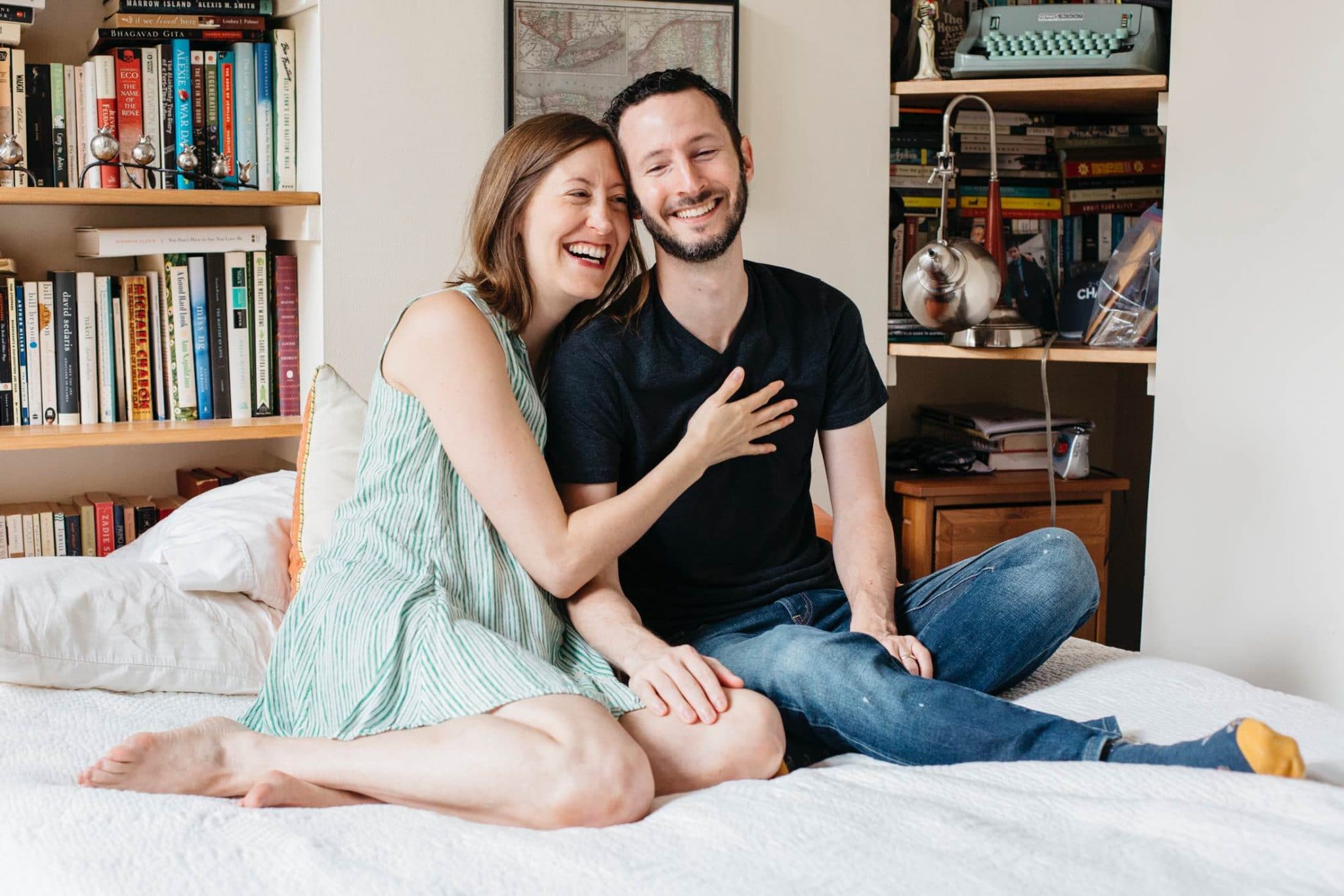
What is the story behind your name?
Jason: Both my sister and I have names starting with “J,” in tribute to Joe, my dad’s dad. I was going to be Justin until the very last minute. They decided that Justin was too common a name, then they went with an extremely common other name.
Jen: My middle name is Lillian. I have great-grandmothers on both sides of the family who were named Lillian. My first name? My parents just liked it. I think they knew that Jennifer was a really common name and they didn’t care.
What is your earliest memory?
Jen: Sometime between two and two and a half, I remember being with my mom while she was getting an ultrasound for my brother. I remember her lying on the table and them putting the gel and the scanner over her belly.
Jason: I remember sitting at the top of the stairs. My mom was sitting on the couch on the first floor breastfeeding my sister Jodi. I was upstairs playing with little Care Bears action figures.
Jen: I love that you were a little boy playing with Care Bears.
Jason: Oh, yeah! I was super into Care Bears! I had a whole ton of them.
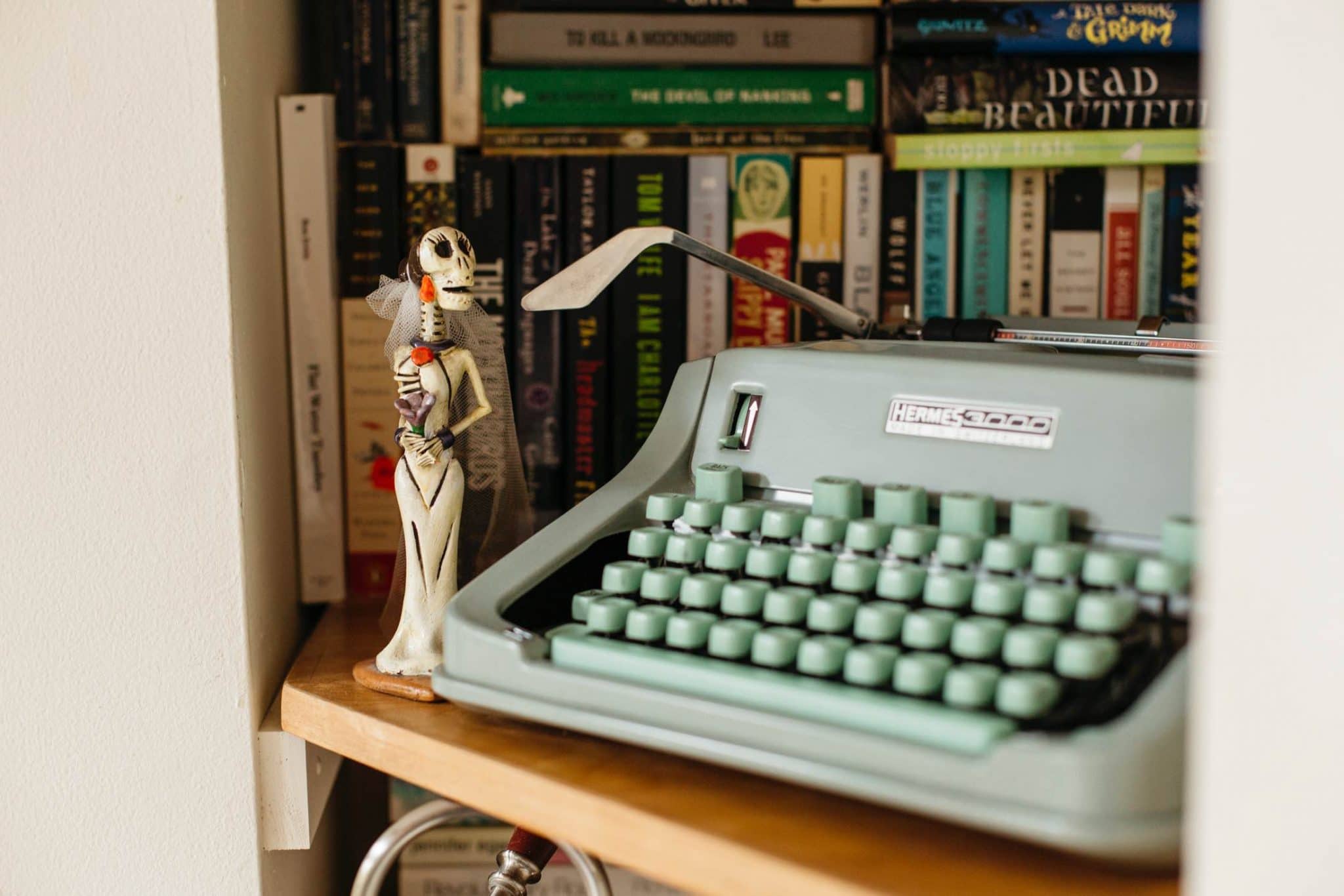
What were you like when you were younger and how does that compare to how you are today?
Jason: I’m still very focused on my own path.
I was writing and drawing comic books when I was in elementary school. The one that I remember the most was named Smiley. I could draw him for you. You know how the old Spiderman comics are half slapstick, half action? They were kind of like that. He had a little team and they went and did superhero-y things, but it was also meant to be a comedy.

I was resistant to change, which is very different from how I am now. I’ve become extremely unsentimental and aggressively focused on not doing things just because that’s the way they’ve been done.
Jen: I was very bookish as a kid and I’m still very bookish. I was always pretty independent and I’m still pretty independent. I did a lot of structured activities, but I didn’t really like structured activities.
I remember being told, “You have to do ballet.” I said, “I don’t like the music. I’m too short to reach the bar.” I wanted to be running and jumping around. I never really liked being on the sports teams, never really liked summer camp.
I didn’t like having my freedom curtailed.
As an adult, I have built a career for myself where I mostly make my own rules. Finally, you get to be old enough that you have personal agency, which is a wonderful thing.

How did Judaism play a role in your upbringing?
Jen: Jason’s parents told him that if he got bar mitzvah’ed, he’d never have to step foot in a synagogue again.
Jason: I just never liked religion. I don’t like the organizing of it. I don’t like the telling people how to live their lives part of it. I don’t like following traditions that people don’t actually understand.
It drove me insane to sit in synagogue, where everybody was reading the transliteration and nobody had a clue what they were saying.
My parents sent me to Israel. I gave them total hell over it, but I actually had a great time. I left feeling about Israel the way that I feel about Scotland. It was fun, a great place. I didn’t feel a connection to it.
There was a period of time when, if you were to ask me, “Are you Jewish?,” I would have said, “No.” I’ve stopped doing that.
Through all of that, I moved to New York and went onto OkCupid and, in the search bar, I typed in “Jewish journalists” and up came Jen! Now, we very occasionally have some kind of Jewish experience, which is to say, we have people over for Shabbat or something. I like that.
Jen: I also never had any love towards organized religion. We went to a Conservative synagogue, and we kept kosher in the house, although we did bring stuff in and eat on paper plates.
I hated Hebrew school. I loathed it!
My dad’s side of the family has history being very active in the forming of the State of Israel. My grandparents were good friends with Golda Meir and David Ben-Gurion. My dad worked on Israeli-Arab relations at the State Department.
We’d do Shabbat once a month and get all of our cousins together. I loved that.
I wasn’t as actively looking for a Jewish partner as Jason was, but I knew that I wanted to have some of that in my life. I really enjoy having Shabbat. I enjoy taking our son to Tot Shabbat. We have a big Rosh Hashanah party and a Hanukkah party every year. I wish I had more of a Jewish community to do that stuff with.
I have a strong cultural interest in what’s happening with the American Jewish community.
I’m interested in exploring new things. I’m interested in how the community is becoming more open and accepting and understanding what they need to embrace in terms of how people’s relationships and affiliations are changing.
I remember I had been indoctrinated enough by my Conservative Hebrew School that I used to feel this sense of, “How can I be partly responsible for this culture dying out?” I used to worry about assimilation, and then I just got over it.
I feel good about what we do and I would like to do more of it.
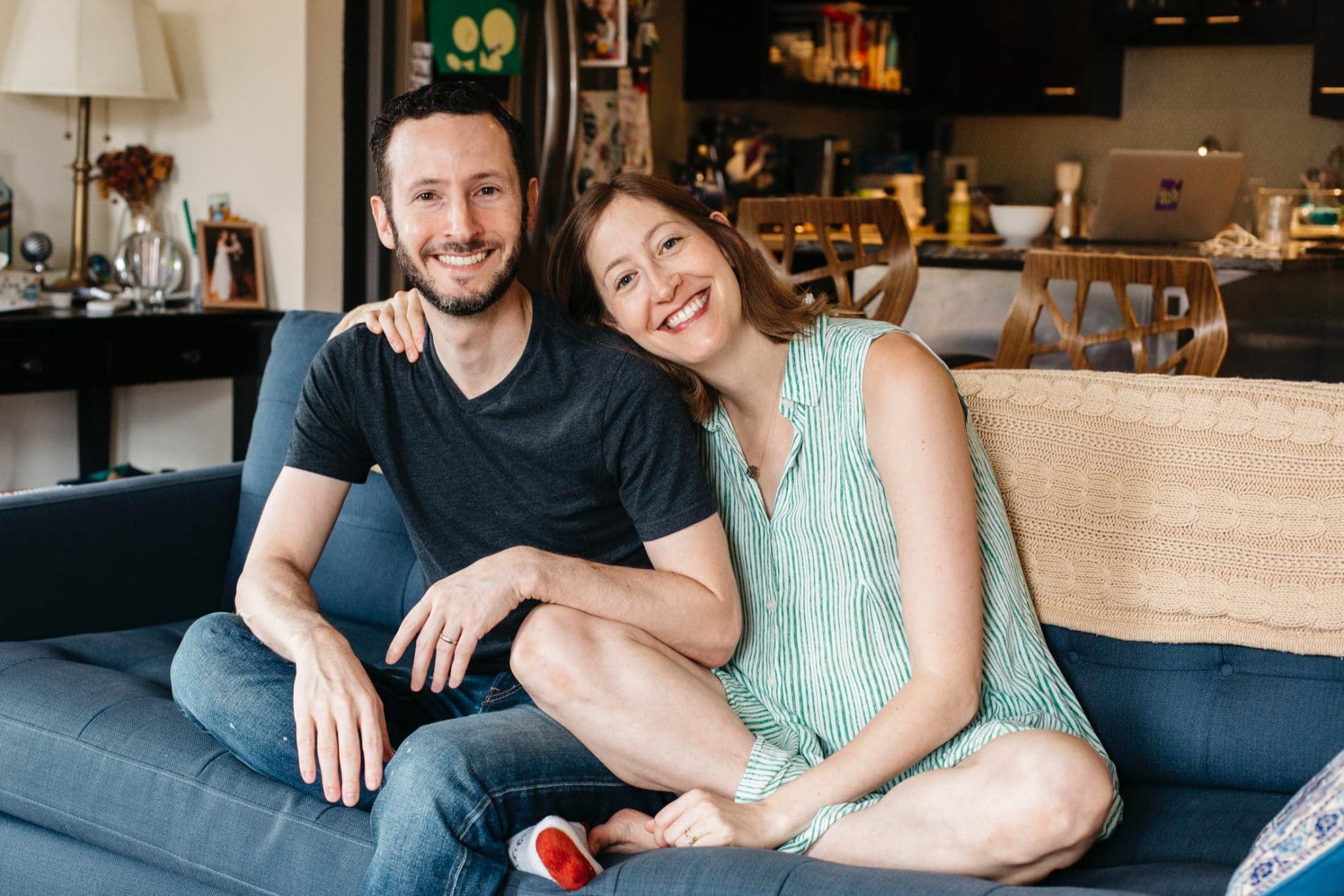
Are there other religions or spiritual practices outside of Judaism that help you connect with the bigger questions about the mystery of the world and who you are?
Jason: I find the questions that religion tries to answer for people to be very uninteresting. What’s the meaning of it all? There is none. What’s the purpose? There is none. That’s not to say that there isn’t meaning and purpose, but I think that you have to look inward.
I am motivated and excited every day to get up and pursue those things that I’m interested in. I find a lot of meaning in my work. I love challenging myself. I can do things if I put my mind to it, and that’s pretty exciting.
I find absolutely no need to manufacture some answer for larger questions.
I guess they seem answered to me. What are we all doing here? What we’re all doing here is, we are the products of random evolution over the course of billions of years. If you want to struggle to find more meaning in that, then you have to turn to some supernatural explanation. Otherwise, you should just embrace it and enjoy the freedom of being the product of something that’s totally random.
Also, embrace the moment in time that you’re in.
We are and are not the products of our past and we are and are not the creators of the future in that we play some kind of small role in the way that a grain of sand shapes a rock that’s randomly tumbling down a hill.
We sit on top of an endless burial ground of other traditions and cultures and things that came and went and maybe lasted thousands of years and are now gone. Here we are doing our thing. It makes me excited.
Jen: Everything that Jason said is true, but it’s not like he only cares about himself and what he wakes up to accomplish every morning. You care about your family, you care about your friends, you care about the world. You wouldn’t be invested in us and in what is happening around us if you only cared about yourself and what you could achieve personally.
Jason: That is all true. We’re all in it together. I mean that in a big way. We share this time, so let’s all be good to each other.
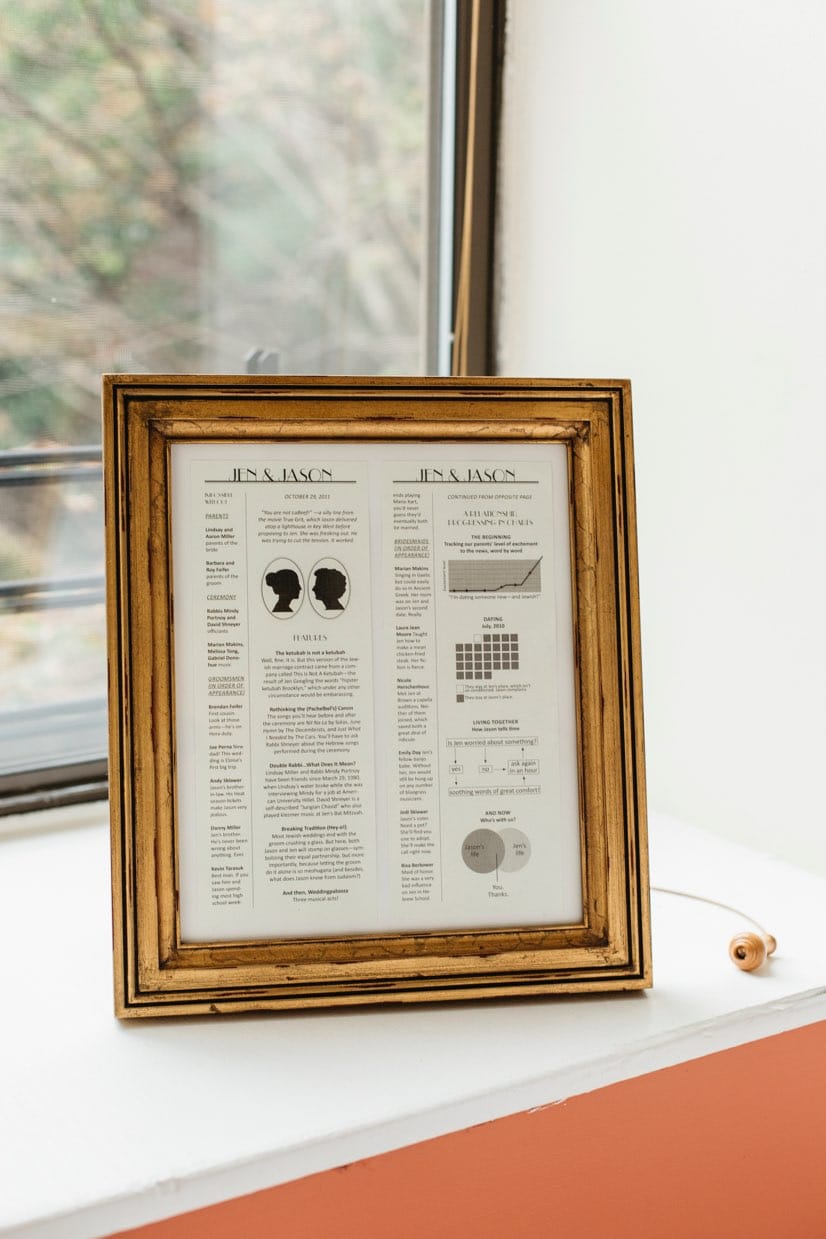
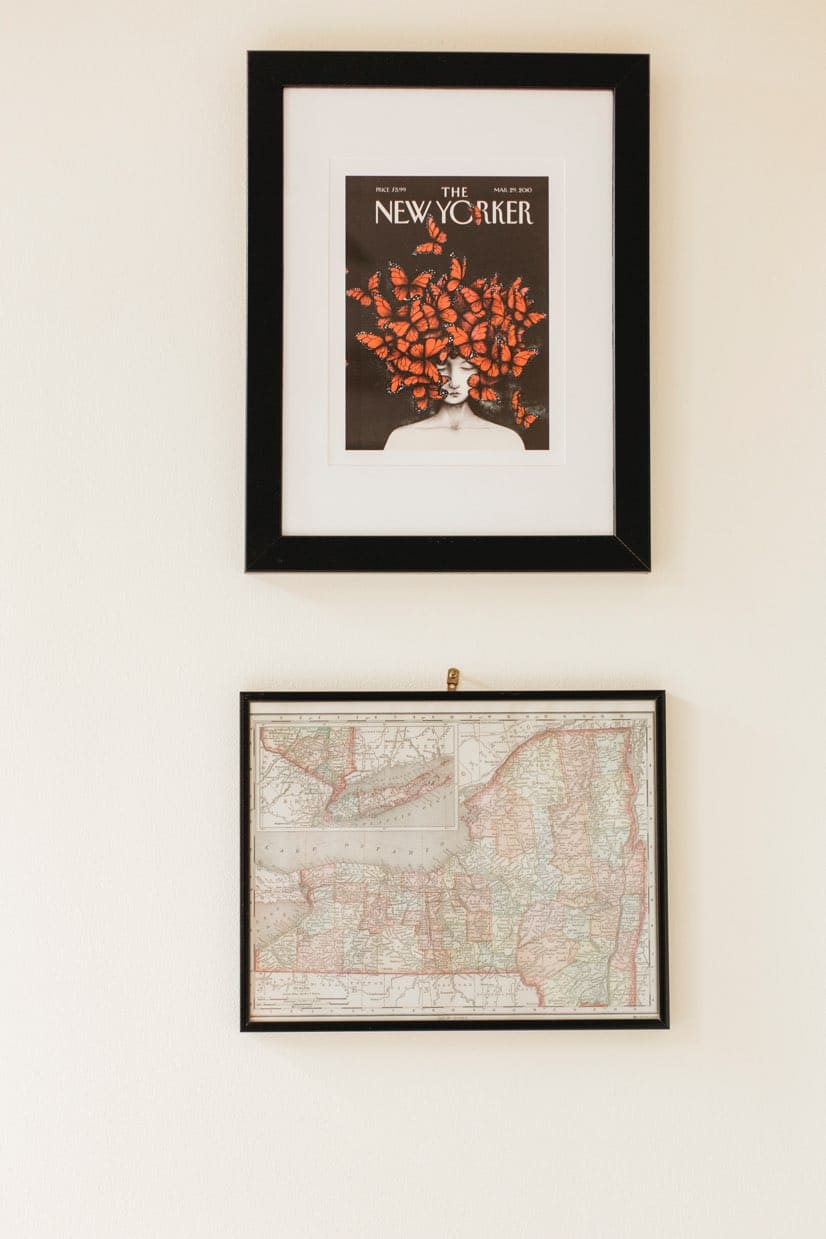
What’s something that works for you two as a couple?
Jen: Our marriage is a team effort and a partnership. There’s a very little line in our lives between personal time and work time, because we both really love what we do.
When we were writing Mr. Nice Guy, we took this long road trip from Florida to New Orleans, and we spent the majority of the time in the car plotting out the book and developing the characters. It was tremendous fun.
We’re world-building together.
You build the world of a book and you also build a world of your family and your home. It’s a lot of, “Here’s what I think. What do you think? Here’s the first idea, how can you build off of it?”
Jason: I was very focused on finding someone who shared my drive. All the better if they also shared the same profession. I absolutely found that in Jen. We’re oriented very similarly and that makes it a lot easier to share all the parts of our life instead of having to only share some of them.
What’s been the biggest surprise to you about being parents?
Jason: I always thought of myself as a patient person. In fact, my parents told me I should be a teacher, long before I got into writing.
I really struggled to find patience with our son.
It’s so much easier and better now. The worst age is where they’re mobile and they have some degree of ability, but they are incoherent and unable to communicate or be reasoned with in any way.
We keep getting told the same thing over and over again by friends: “You guys make it seem so easy.” Or, “You’re so calm.” I’ve always wondered, “Is that just something people say to every parent? Because it doesn’t seem like we’re doing anything particularly special here.” I do think that we’re pretty easy-going.
It’s very likely that we have an easy kid.
Jen: I do think we have an easy kid, but I think we’re also not overly worried about him or overly protective. Within a couple of days of coming home from the hospital, we were going out to dinner. We thought, “Let’s try to have as much of our lives as we can.”
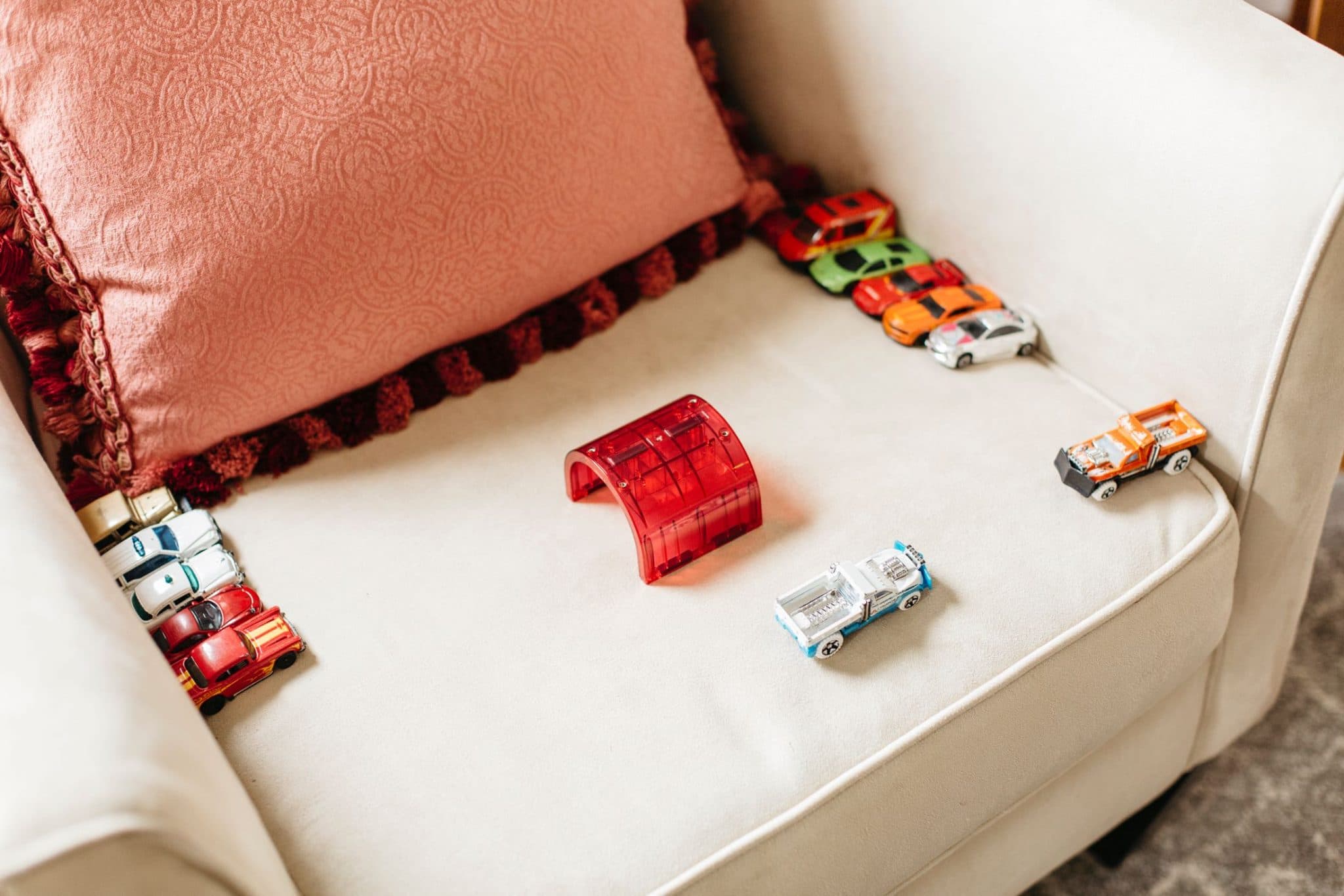
Share something that you’ve learned recently.
Jen: I’m writing a story about the American dream in 2018 and the possibility for upward mobility.
For people who are graduating college today, two things really matter. One, what actual job and salary you get right out of college. According to this one study from professors out of UMass, that is a much greater determinant today of what your salary will continue to be for the entirety of your professional life. It’s not just about the field that you’re in, it’s even about the firm that you go to.
That’s pretty disheartening, but it’s fascinating to me.
Jason: I recently interviewed Malcolm Gladwell for Entrepreneur, and he told me a couple of things that I’m going to be repeating forever.
It resonated for me when he said that, as he got older, he realized that he needed to give problems the respect that they deserved.
When we’re younger, we tend to want to solve a problem.
If we cannot do that almost immediately, we feel like we’ve been defeated by it, or we move on from it and we pass up whatever opportunity there would have been in the solving. Some problems are really complex and you need to give them the time that they deserve in order to actually work through them.
I found that to be very true and important. I’m a year and a half into the project of building a speaking business. I don’t know how much time it takes, but, at a year, I feel like I’m doing pretty good. I know that in a year it’ll be even better. Don’t rush it.
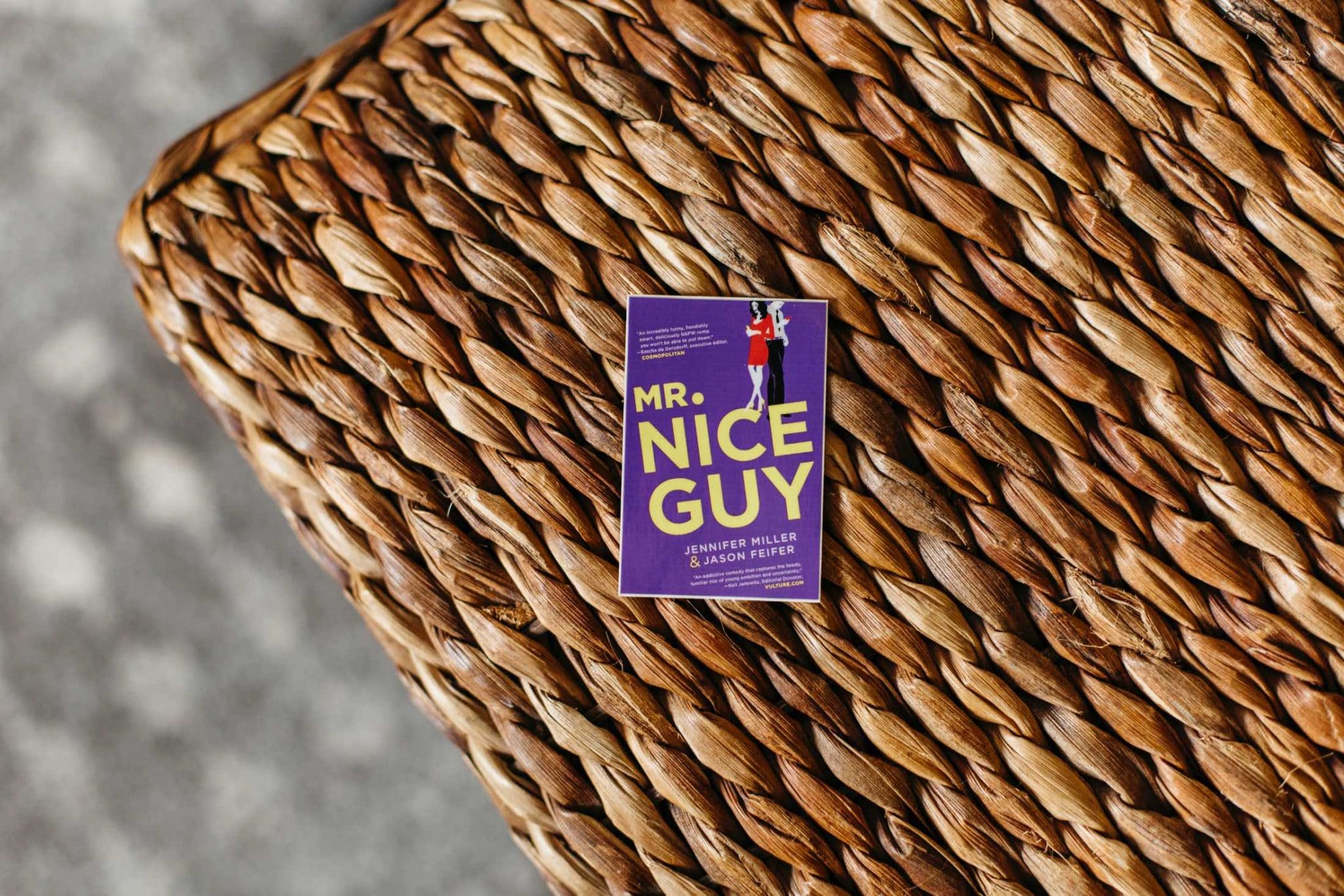
What are your favorite words?
Jen: What comes to mind are my least favorite words. Panties, I hate. It’s always undies or underwear. Also, fetus. Hate the word fetus.
I really like the word penultimate. That’s a good word.
Jason: I love the word defenestration, because it’s so unbelievably specific. It’s amazing that there’s a word for throwing someone out of a window.
The words that I hate are all lazy phrases that people use because they’re not pushing themselves to be more descriptive. I will flag this every time it shows up in a story: the phrase “found himself” or “found herself.” “She found herself working at a law firm.” Unless you passed out and then woke up with a job at a law firm, you did not find yourself at a job at a law firm.
Favorite and least favorite Jewish food?
Jen: Favorite is challah, obviously.
Jason: I was going to say the same. Really good challah. My least favorite is bad challah. It makes me angry.
Photos by Elena Mudd
Thank you for visiting Arq!
Arq is no longer publishing new content. We hope you'll enjoy our archived posts.